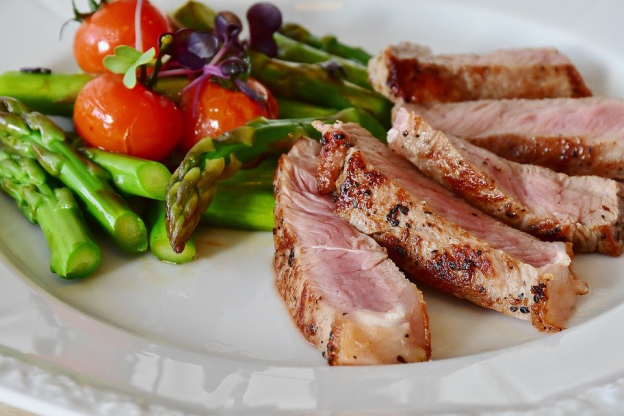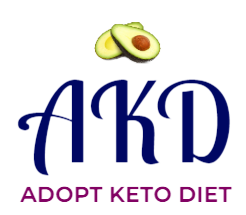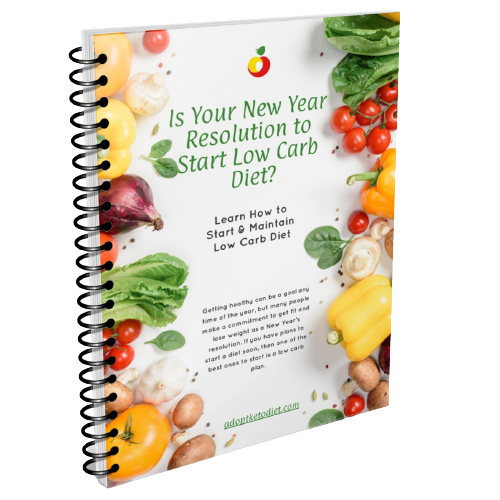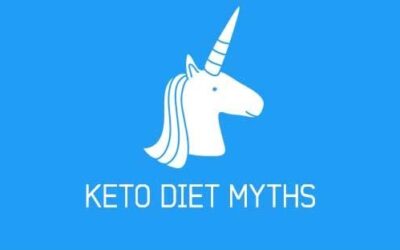A ketogenic diet isn’t something new. It’s been around from the 1920s for treating patients who are afflicted with epilepsy. Now, studies are being done for its possibility to reverse PCOS, acne, diabetes, and other conditions associated with insulin resistance. In this article, we will talk about the PCOS and keto diet connection.
The Keto diet is different from a customary carb-rich diet. This diet has moderate protein, is low in carbs, and is high in fat.
The body will not use glucose to produce energy, and restricted carb intake will make the body run on fat.
The human body can use fat and not glucose for energy. It’s simpler for the human body to use glucose if available. Thus, to make the body function on stored body fat, it must be deprived of sugar.
While glucose is a fast-digesting energy source, it’s needy. When glucose runs low, the body gives in to its desire for more sugar.
What does a body that is keto-adapted do? It will use the fat from the diet and subsequently burn through its fat stores for energy if the need arises.
A good number of women go through a rapid loss of weight that they did not experience before by doing a keto diet.
Why is this weight loss so significant?
Losing weight lessens Insulin Resistance
Keto dieters have a low carb diet that does not include foods that prompts insulin resistance and encourages the loss of weight.
As the body takes more time to digest fat, people feel fuller sooner and for longer. People do not overeat and do not desire snacks.
In a study, people on a low carb diet had a
- 14% loss of body weight
- 50% drop in insulin levels
- Lower insulin resistance and triglycerides
A 14% drop in a lady weighing 200 pounds is a loss of 28 pounds! This could be sufficient to take one’s BMI off the obese range and into the improved territory.
While PCOS women find it harder to lose weight, 11 PCOS women who did keto for six months found similar results. They lost an average body weight of 12% and had a 54% drop in fasting insulin levels.
Lesser body weight and lessened insulin resistance could be sufficient to balance hormones, silence PCOS, and even help women conceive. That says a lot of the PCOS and keto diet connection.

The PCOS and keto diet connection in expelling depression and anxiety
As depression and anxiety are symptoms of PCOS, numerous women have frequently prescribed drugs to manage these issues. A possible result of these drugs is weight gain, which adds to the difficulty of losing weight and fighting PCOS.
Keto could be of use in depression.
In a study, PCOS women were separated into two groups. A group had a low-carb and high-protein diet, and the other the usual low-protein and high-carb diet.
Sixteen weeks later, the low carb women had a significant boost in their confidence and significantly lesser depression. The high carb group did not have these changes.
PCOS technically has no cure. However, a low carb diet, particularly a Keto diet, is proved to lessen insulin levels, help in weight loss, and improve quality of life. Thus, the PCOS and keto diet connection.
How about starting with a Keto Diet for PCOS?
Women who have PCOS may benefit from a standard keto diet initially. However, they will most likely have to make some minor changes to see what functions for their body.
In any case, women who have PCOS cannot be called “normal.” Moreover, the study of the effectiveness of keto diets in PCOS relief is in its early stages.
Womens with PCOS who follow some simple guidelines will have an easier time with their PCOS symptoms.
It’s essential to find the right amount of carb to have
Keto has to do with limiting the number of carbs eaten. Though this is effective for several PCOS cysts, there is the possibility that it won’t work for someone immediately.
People must check if they have the habit of having a good part of their calories from carbs. When they shut down that fuel source, their body could enter panic mode and boost insulin resistance.
Thus, a lady must first know the number of carbs she is eating. They can know this with a food journaling app.
A classic keto diet tries to maintain a daily carb consumption of less than 30g.
Those having near 300g daily could find this change too drastic for their system to manage at first.
It’s wise to commence slow with 100g, followed by 75, 50, 35, and possibly even 25g for a veteran keto dieter.
It’s essential to understand one’s body. Those who require more carbs should increase them by 5 to 10g. Once they feel okay, they can lower again and see if their body adapts.
A person can judge her right card amount the best.
It’s essential to have fiber
Fiber doesn’t just help control insulin levels and keep insulin resistance at bay. It maintains a smooth digestive system, helps feel full, and lessens inflammation. Thus, it’s essential to have no less than 30g of fiber daily and try to have fiber in all meals and snacks.
A keto high fiber bread is a yummy keto stand-in for whole wheat bread. It also supplies the added fiber needed on the keto diet. This high fiber bread recipe is low in carbs. This bread tastes great for breakfast and as lunch and dinner. Those who like the texture and flavor of whole wheat bread will love this recipe. This recipe has seeds, nuts, and psyllium. They ensure that the keto dieter is getting sufficient insoluble and soluble fiber.
It’s crucial to have Nuts and Fatty Fish
Fatty fish that includes sardines, salmon, tuna, mackerel, and herring have wholesome omega-3 fats. It’s proved to better insulin sensitivity in women who have PCOS and considerably lessen insulin, glucose, and insulin resistance. These powerful omegas are present in keto-friendly nuts.
An excellent example of PCOS and keto-friendly nut recipe is the Keto Walnut Cookies. Making this mouthwatering keto walnut cookie is as simple as can be, and the net carbs in a cookie are 1 gram. For this recipe, use monk sugar. It is without calories or carbs.






0 Comments